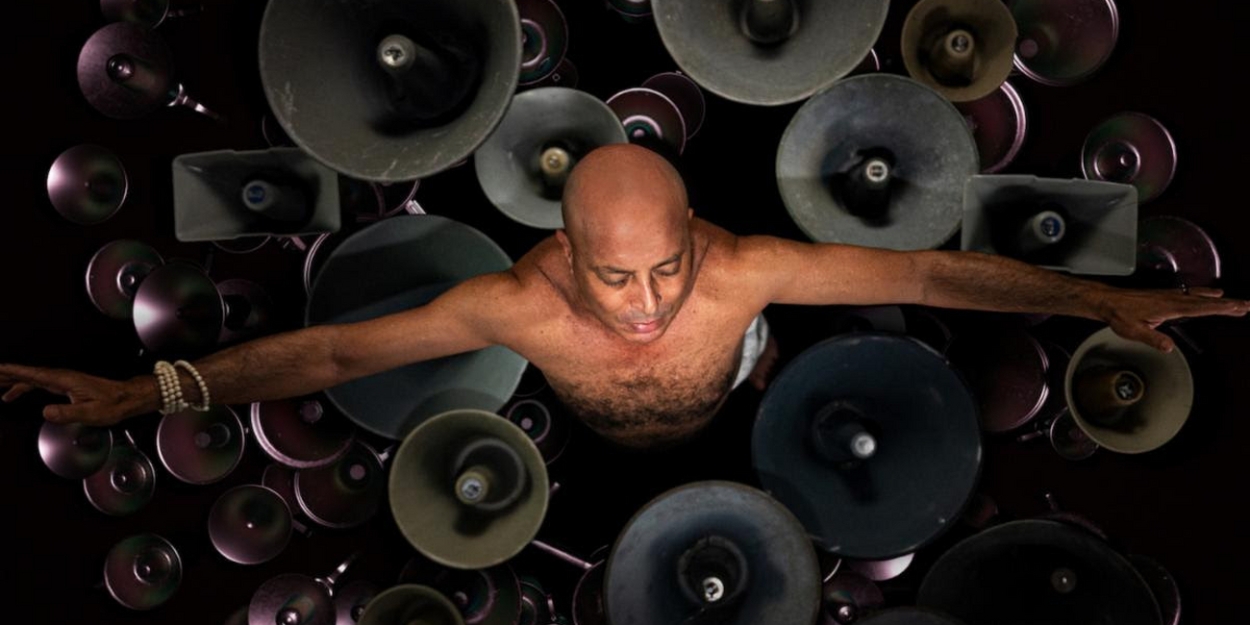Dhafer Youssef Releases 10th Studio Album 'Street of Minarets'
The album is written from the fifty-something Dhafer of today to his teenage-self.

Tunisian oud master and vocalist Dhafer Youssef has released his tenth studio album, Street of Minarets, out today via Back Beat Edition. Written from the fifty-something Dhafer of today to his teenage-self, the album offers a gift for the dreamers, the lovers, the fighters, and the obscure.
Joined by musical icons including Herbie Hancock and Dave Holland, Street of Minarets continues to spotlight Dhafer's seamless ability to build a bridge between Indian, Arabic, and Western classical and jazz music.
Speaking to the importance of Street of Minarets, Dhafer shares, "This album is for a young Dhafer armed only with his oud and music sheets. The kid who, 30 years ago, landed in Vienna carrying an instrument and a backpack. The kid with no more than a few coins in his pocket, no source of income and no lifeline to support him in this new city. Young Dhafer had a plan, a dream: to share his music and to make this his livelihood. And this dream was everything - the key to his delivrance, the source of his inspiration and the roadmap to his fulfillment."
"My childhood memories were not merely depressive wanderings of the mind, but a point of reference, a root stretching into the present to allow for the growth of new branches, and to give life to this album," he continues. "Here, I develop voice effects which are reverberations from my childhood. The sound of megaphones perched high atop the village resonate on this album. This sound is within me. It has never left me, lives inside me. And now it is time that I share it with you. The fruit of my sufferings and raptures, depressions and ruminations, successes and doubts, Street of Minarets is my offering to you."
The 12-track LP features an ensemble of friends in addition to Herbie (piano) and Dave (double bass) including Marcus Miller (bass), Nguyên Lê (guitar), Rakesh Chaurasia (flute), Adriano Dos Santos Tenori (percussion), Vinnie Colaiuta (drums) and Ambrose Akinmusire (trumpet) who Dhafer first invited to be on the record before eagerly composing the music with them in mind.
The album's opener and title track, "Street of Minarets," is an amalgamation of chants and thrumming sounds setting the tone for what's to come as the cinematic "Bal D'âme" carries the listener through an antiphony between Dhafer's oud and Herbie's piano.
Drawing upon his funk repertoire, "SharQ Suite II: Funky SharQ" and "Sudra Funk'' are masterfully driven by syncopated rhythms of bass and drums as "Herbie's Dance" shows how Dhafer imagined how the legend himself would play over the groovy tune. Meanwhile, lead single and album closer "Ondes of Chakras," which Spotify featured as one of the Best Jazz Songs of 2022, is enveloped by a flurry of woodwind flourishes, strings, and a percussive backdrop.
Originally recorded at the historic Sunset Studio in Los Angeles with flute and percussion recorded in Paris, mixed in Lyon, France, and mastered in Göteborg, Sweden, Street of Minarets is the outcome of persevering through uncertainty and strife over the course of five years. After playing his last show before the beginning of the pandemic, Dhafer sank into an intense state of anxiety and depression when he woke up without his voice and soon learned he would be in need of emergency vocal surgery.
While the procedure went smoothly, the road to recovery was long and painful but accompanied by silver linings. In his dreams, Dhafer began experiencing music in new ways, interacting with them as he never had, which ignited the passion that was missing when Street of Minarets was in its beginning stages. Having an epiphany of sorts, he finally knew how to rearrange and rewrite the album in the way it was meant to be. What was once an unfinished project of sufferings and successes ultimately spotlights Dhafer's inspiring resilience and determination on his best work to date.
Listen to the new album here:
Comments

Videos

